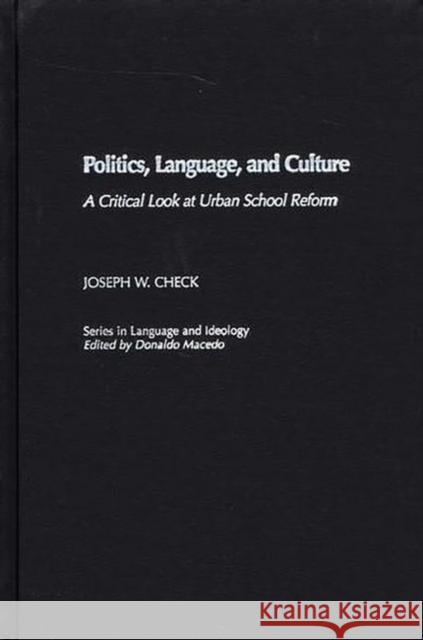Politics, Language, and Culture: A Critical Look at Urban School Reform » książka
Politics, Language, and Culture: A Critical Look at Urban School Reform
ISBN-13: 9780897896474 / Angielski / Twarda / 2002 / 240 str.
Politics, language, and culture are three of the most powerful forces affecting education today, yet they have been little discussed in relation to systemic school reform, the new status quo of urban schools. This book looks at their effects through the eyes of teachers, administrators, and insider/outsiders who are actually living reform at the school level in four widely different urban school systems: Chicago, San Francisco and Oakland, California, and Boston. The book also creates a statistical and conceptual picture of urban education and school reform as national phenomena with deep historical roots, and offers a composite case study of an urban elementary school undergoing reform.
The author argues that urban school reform is failing becasue its basic strategy is misguided and because reform thinking has consciously ignored three essential sources of knowledge about school change. Strategically, efforts for reform have relied heavily on the widespread replication of nationally promoted exemplary programs. This approach assumes that local schools lack the knowledge and will to solve their own problems and require prescriptive intervention from national models. In fact, the exemplary programs approach has yielded very limited success. What is needed instead is the creation and long-term support of unique, local exemplary contexts that combine best-practice approaches with local knowledge, conditions, and resources.











